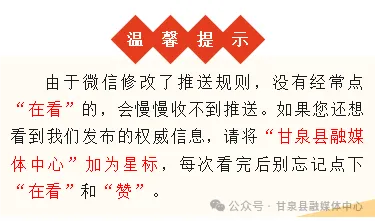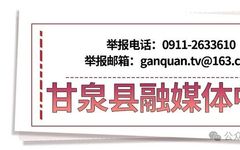Health status can be divided into three categories: first, a healthy state without disease; second, a state of wanting to be ill but not yet ill; third, a state of being ill but not yet transmitted. “Preventing disease before it occurs” addresses these three states, emphasizing the importance of health maintenance to prevent disease, early treatment to prevent minor issues from escalating, and prompt treatment of existing illnesses to prevent complications.
According to TCM theory, human constitution can be classified into nine types: Balanced Constitution (Pinghe zhi), Qi Deficiency Constitution (Qi xu zhi), Yang Deficiency Constitution (Yang xu zhi), Yin Deficiency Constitution (Yin xu zhi), Phlegm-Damp Constitution (Tan shi zhi), Damp-Heat Constitution (Shi re zhi), Blood Stasis Constitution (Xue yu zhi), Qi Stagnation Constitution (Qi yu zhi), and Special Constitution (Te bing zhi). Here, we will discuss how to maintain health for those with a Balanced Constitution.
Balanced Constitution
Overall Characteristics: The balance of Yin, Yang, Qi, and Blood, characterized by a moderate physique, rosy complexion, and abundant energy.
Physical Characteristics: Well-proportioned and robust physique.
Common Manifestations: Rosy complexion and skin, thick and shiny hair, bright eyes, moist nose, clear sense of smell, rosy lips, resistance to fatigue, abundant energy, tolerance to cold and heat, good sleep, normal appetite, regular bowel movements, pale red tongue, thin white coating, and a soft, strong pulse.
Psychological Characteristics: Easy-going and cheerful personality.
Tendency to Illness: Rarely suffers from illnesses.
Adaptability to External Environment: Strong adaptability to both natural and social environments.

Characteristics of Balanced Constitution
How to Maintain Health with a Balanced Constitution?
1. Body Regulation Principles
A Balanced Constitution is characterized by good innate endowment and proper postnatal nurturing, with moderate physique, rosy complexion, abundant energy, and strong organ function. The principles of body regulation are as follows:
Strengthen the foundation and maintain balance: The principle is to strengthen the foundation and cultivate the essence, achieving a comprehensive balance of Yin and Yang in the body, thus maintaining the constitution in a good state.
2. Dietary Regulation
(1) Regulation Methods
It is recommended to choose foods that strengthen the spleen and nourish the kidneys for maintenance.
Suitable Foods:
Grains: Wheat, Japonica rice, Soybeans, Sesame, etc.
Meats: Quail, Rabbit, Sea cucumber, Crucian carp, etc.
Vegetables: Yam, Cabbage, Tofu, Wood ear mushrooms, etc.
Fruits: Apples, Peaches, Pears, Oranges, Walnuts, etc.
Selected Recipes:
1. Red Date and Codonopsis Simmered Sea Cucumber
[Ingredients] 10 Red dates, 12g Codonopsis (Dang Shen), 50g Sea cucumber, 30g Black fungus, 100g Carrot, 300ml Chicken broth, appropriate amounts of Shaoxing wine, green onion, ginger, salt, and vegetable oil.
[Preparation] Wash and pit the red dates; clean and soak the sea cucumber, then cut into strips; soak the black fungus, remove the stems, and tear into pieces; cut the carrot into 4cm long and 3cm wide pieces; crush the ginger and cut the green onion into sections; heat the pot, add vegetable oil, and when hot, add green onion and ginger to sauté until fragrant, then add sea cucumber, Shaoxing wine, salt, Codonopsis, red dates, black fungus, and carrot, stir-fry evenly, then add chicken broth and simmer until thickened.
[Effects] Tonifies Qi and nourishes Blood, enhances essence and marrow.
[Usage] Serve with meals.
2. Cabbage and Tofu Soup
[Ingredients] 250g Cabbage, 250g Soft tofu, 25g Fermented soybeans, 5g Seaweed, 2 cloves Garlic, appropriate amounts of green onion, ginger, salt, monosodium glutamate, starch, and vegetable oil.
[Preparation] Heat oil in a pot, sauté green onion and ginger, add fermented soybeans and stir-fry, then add shredded cabbage, stir-fry, add appropriate water, boil for 5 minutes, then add tofu slices, boil, season, thicken slightly, and sprinkle with seaweed before serving.
[Effects] Strengthens the spleen and harmonizes the stomach.
[Usage] Serve with meals.
3. Yam and Lentil Porridge
[Ingredients] 30g Yam, 15g White lentils, 180g Japonica rice, a little sugar.
[Preparation] Wash the Japonica rice, slice the yam, and clean the white lentils; place the rice and lentils in an aluminum pot, add appropriate water, bring to a boil over high heat, then simmer until 80% cooked, add yam slices and sugar, continue to cook until done.
[Effects] Tonifies the spleen and stomach.
[Usage] Serve with meals.
(2) Precautions
1. Diet should be moderate, with reasonable nutritional balance throughout the seasons.
2. Eat more whole grains, vegetables, and fruits, and avoid overly greasy and spicy foods.
3. Lifestyle Regulation
(1) Regulation Methods
1. Maintain regularity in daily activities and avoid overexertion.
Follow the body’s biological clock for daily activities, live a regular life, and reasonably arrange study, work, sleep, and rest to develop good habits. Regularity in daily activities can nourish the spirit, making the body energetic and vibrant. Otherwise, excessive indulgence and going against natural rhythms can damage organ function, lead to fatigue, reduce adaptability, lower constitution, and cause premature aging or illness. As stated in the “Huangdi Neijing Suwen: On the Original Nature of Man,” “Without regularity in daily activities, one will decline by the age of fifty.”
2. Adapt to the four seasons and adjust daily activities accordingly.
Spring Health Maintenance
The “Huangdi Neijing Suwen: On the Regulation of Qi and Spirit” states: “In spring, during the three months, this is the time for growth and renewal, when heaven and earth are alive, and all things flourish. Sleep late and rise early, walk freely in the courtyard, and loosen your hair and clothing to allow your spirit to flourish.” Spring is a season of vitality and renewal. It is advisable to sleep late and rise early, and after getting up, take leisurely walks outdoors to align with the upward and expansive energy of spring.
Summer Health Maintenance
The “Huangdi Neijing Suwen: On the Regulation of Qi and Spirit” states: “In summer, during the three months, this is the time of flourishing and abundance, when heaven and earth meet, and all things are rich and beautiful. Sleep late and rise early, and do not tire of the sun.” Summer is a season of interaction between Yin and Yang, where all things are flourishing and abundant. One should go to bed later and rise earlier, engage in more activities, and align with the fullness and richness of Yang energy, which benefits Qi and Blood circulation and invigorates the spirit. Summer days are long, and it is advisable to take a proper nap at noon to eliminate fatigue and improve afternoon work and study efficiency. In the evening, do not stay out too late to avoid illness.
Autumn Health Maintenance
The “Huangdi Neijing Suwen: On the Regulation of Qi and Spirit” states: “In autumn, during the three months, this is the time of harmony and balance, when the weather becomes urgent, and the earth’s energy becomes clear. Sleep early and rise early, and rise with the rooster.” In autumn, Yin energy gradually increases while Yang energy decreases, and all things bear fruit. One should sleep early and rise early to align with the gathering energy of autumn. Going to bed a little earlier aligns with the storage of Yin essence, while getting up a little earlier aligns with the expansion of Yang energy.
Winter Health Maintenance
The “Huangdi Neijing Suwen: On the Regulation of Qi and Spirit” states: “In winter, during the three months, this is the time of closure and storage, when water freezes and the earth cracks, do not disturb the Yang; sleep early and rise late, waiting for sunlight.” In winter, all things are in a state of closure and storage. One should sleep early and rise late, avoid cold and seek warmth, and align with the hidden energy of winter. Pay attention to keeping warm, especially the feet, to enhance the body’s resistance to cold and reduce the occurrence of colds and other diseases. Additionally, clothing should not be too thick; excessive sweating can also damage Yang energy.
(2) Precautions
1. Maintain good daily habits consistently.
2. Avoid sleeping immediately after eating, and ensure sufficient sleep time.
4. Exercise for Health
(1) Regulation Methods
Persist in exercise to balance Yin and Yang.
Activities: Choose different sports based on personal conditions and preferences. For young people, running, various ball sports, swimming, etc., are suitable; for the elderly, moderate walking, Tai Chi, etc., can help maintain the balance of Yin and Yang.
Exercise Frequency and Duration: Consistency is key; it is recommended to exercise daily for half an hour to an hour.
(2) Precautions
1. Avoid impatience for quick results. The effects of exercise often take a long time to manifest; expecting immediate results is unrealistic.
2. Avoid randomness. Exercise should be consistent; do not engage in activities only when in the mood.
3. Avoid drinking large amounts of water after exercising. Excessive water intake can burden the circulatory and digestive systems, especially the heart.
4. Avoid taking a cold shower immediately after exercising. The rapid increase in internal heat during exercise causes the skin’s capillaries to dilate for heat dissipation. Sudden exposure to cold can cause the already open pores to close abruptly, leading to dysfunction of internal organs and abnormal temperature regulation by the brain, resulting in illness.
(Source: Xuexi Qiangguo)
END

Supervised byGao YanpingReviewed byZhang ShengyanEdited by Bai Teng Liu Qiang





